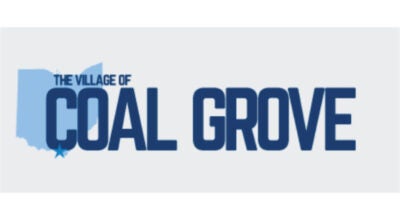Ohio jobs program up for renewal vote
Published 12:00 am Sunday, May 2, 2010
COLUMBUS (AP) — Voters in the May 4 primary will decide whether to renew a state jobs program and change the site of one of four casinos planned in Ohio. Neither state ballot issue faces organized opposition but both have critics.
Issue 1 would extend the jobs creation program to 2016 by authorizing $700 million in additional bonds. Issue 2 would change the location of the Columbus casino from a downtown neighborhood to a former auto parts factory on the city’s west side.
Renewing the Third Frontier program, which provides startup money for companies in industries such as alternative energy and biomedical research, has bipartisan support and the backing of business leaders and labor groups at a time when Ohio has been bleeding manufacturing jobs and the state’s unemployment rate is at 10.9 percent.
The program has spent about $1 billion, generating $6.6 billion in economic activity in Ohio and creating 41,300 jobs, according to an independent study conducted by SRI International, a nonprofit research institute based in Menlo Park, Calif.
High-tech job growth in Ohio has increased 6.4 percent since 2004 — faster than most Midwest states but lower than the 9.1 percent industry growth for the entire U.S., according to an analysis by the Ohio Business Roundtable, a nonpartisan group of business leaders.
Third Frontier began in 2002 as a 10-year, $1.6 billion initiative. Even though it doesn’t expire until 2012, it must be renewed now to assure private investors that Ohio remains committed, supporters say.
“When you’ve got something that is successful, now is the time to take advantage of the opportunity,” said Jo Ann Davidson, a former Ohio House speaker and Republican National Committee co-chairwoman who is helping to promote the campaign.
Investments have included more than $33 million into solar panel technology in northwest Ohio, including Xunlight Corp., a company formed by a University of Toledo physics professor that makes solar panels that are lighter and more flexible than traditional models.
Renewing the Third Frontier program won’t raise taxes, but the bonds will need to be repaid from future state budgets.
The plan does have critics, including former state Rep. Tom Brinkman, a Republican from Cincinnati who argues that it encourages corporate welfare.
“Entrepreneurs have figured out that they don’t have to put up their own money because the state of Ohio is there with a handout,” he said.
The casino measure directly affects Columbus but requires a statewide vote.
Penn National Gaming Inc., which last November got voter approval to develop casinos in Cleveland, Columbus, Cincinnati and Toledo, wants to build the Columbus casino on property occupied by a former Delphi auto parts factory.
The casino had been planned for the Arena District, which is home to the Columbus Blue Jackets hockey team and the city’s new minor league baseball stadium. But Mayor Michael Coleman objected, saying it would clash with the downtown neighborhood’s family oriented theme.
At the urging of Coleman and various state lawmakers, Penn National Gaming agreed to change locations. The Legislature passed a joint resolution putting the issue on the May ballot.
Rob Walgate, vice president of the Ohio Roundtable, which has traditionally opposed expanded gambling in Ohio, said the deal with lawmakers shows how much clout the gambling industry has in the state.
Walgate said his group isn’t organizing a campaign against Issue 2 but is encouraging voters to turn it down because it’s essentially a special favor to Columbus business interests.
If Issue 2 fails, Penn National Gaming would go back to the downtown location, as required by the state Constitution.
“But we’re confident people will understand that there really is no reason to vote against this,” company spokesman Bob Tenenbaum said.





